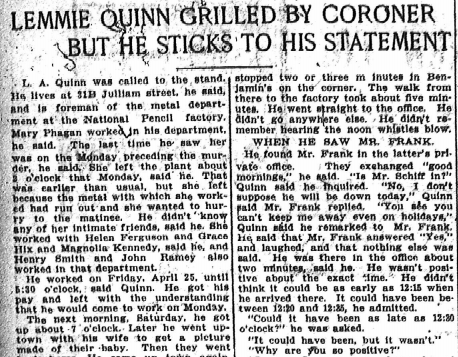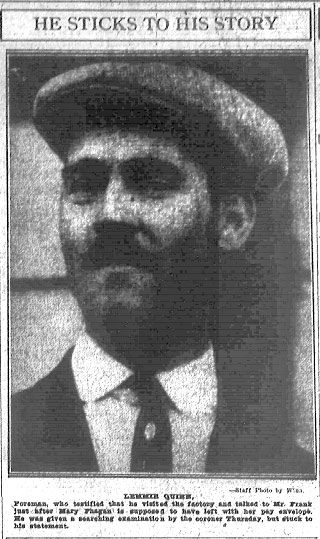Another in our series of new transcriptions of contemporary articles on the Leo Frank case.
Atlanta Journal
Thursday, May 8th, 1913
L. A. Quinn was called to the stand. He lives at 31B Julliam street, he said, and is foreman of the metal department at the National Pencil factory. Mary Phagan worked in his department, he said. The last time he saw her was on the Monday preceding the murder, he said. She left the plant about 2 o’clock that Monday, said he. That was earlier than usual, but she left because the metal with which she worked had run out and she wanted to hurry to the matinee. He didn’t know any of her intimate friends, said he. She worked with Helen Ferguson and Grace Hix and Magnolia Kennedy, said he, and Henry Smith and John Ramey also worked in that department.
He worked on Friday, April 25, until 5:30 o’clock, said Quinn. He got his pay and left with the understanding that he would come to work on Monday.
The next morning, Saturday, he got up about 7 o’clock. Later he went uptown with his wife to get a picture made of their baby. Then they went back home. He came up town again, said he. He was stopped there, and questioned closely about hours and minutes.
He left home about 9:30 o’clock, he said. He and his wife and baby went straight to Kuhn’s photograph studio. They were there about ten minutes, he said. Continue Reading →











 Another in
Another in  Another in
Another in  Another in
Another in 





